Are you considering buying a second property in Singapore, but don’t have the cash for a down payment? Don’t worry, you’re not alone. Many people face this same challenge when trying to invest in property. Fortunately, there are strategies you can use to buy a second property with no money down in Singapore.
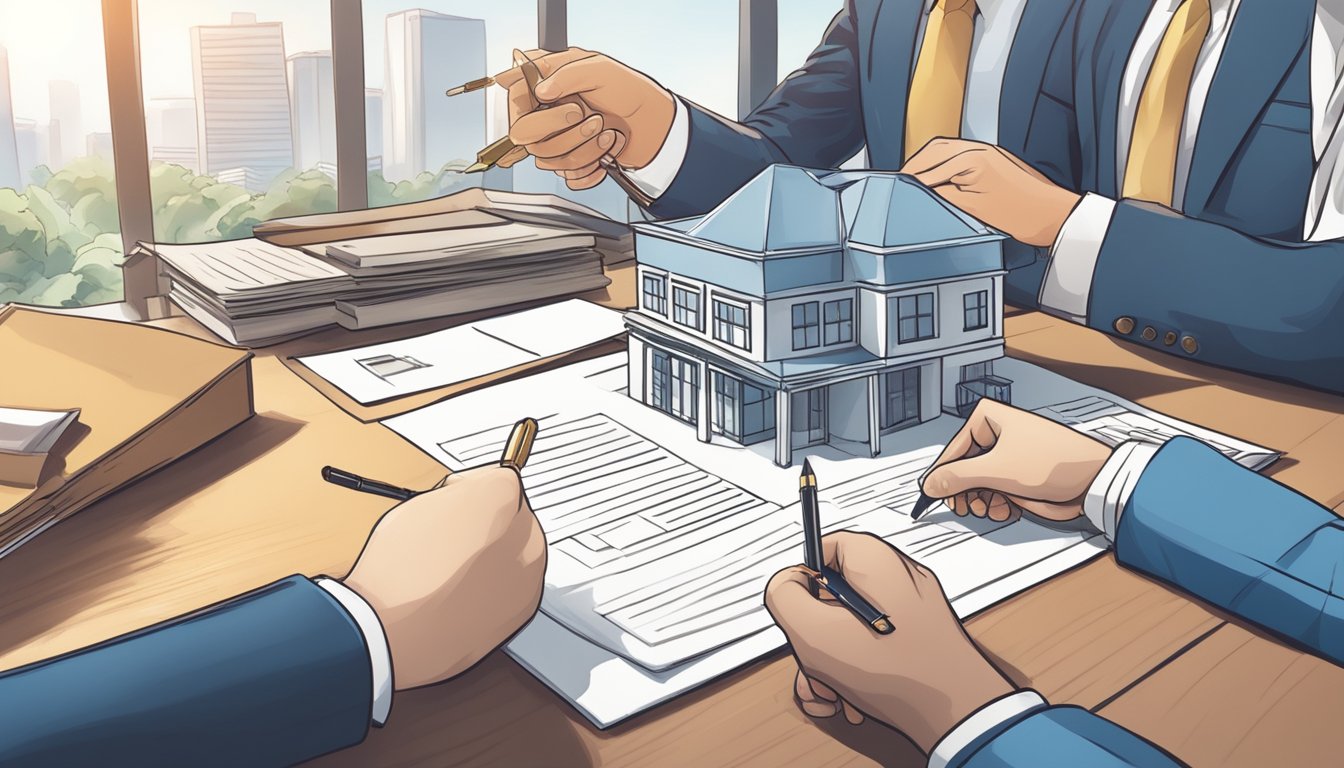
Before we dive into the strategies, let’s first understand the basics of buying a second property in Singapore. As a Singaporean citizen, you are subject to additional buyer’s stamp duty (ABSD) when purchasing a second property. The ABSD is a tax on the purchase price of the property, and the percentage you pay depends on the number of properties you own. For example, if you’re a Singaporean citizen and the purchase price of your second property is $2 million, you’ll have to pay an ABSD of 12%, or $240,000. Understanding the ABSD is important when considering how to finance your second property purchase.
Key Takeaways
- Buying a second property in Singapore comes with additional buyer’s stamp duty (ABSD) costs.
- There are strategies you can use to buy a second property with no money down in Singapore.
- These strategies include partnering with others, using CPF funds, and exploring financing options.
Understanding the Basics of Buying a Second Property in Singapore
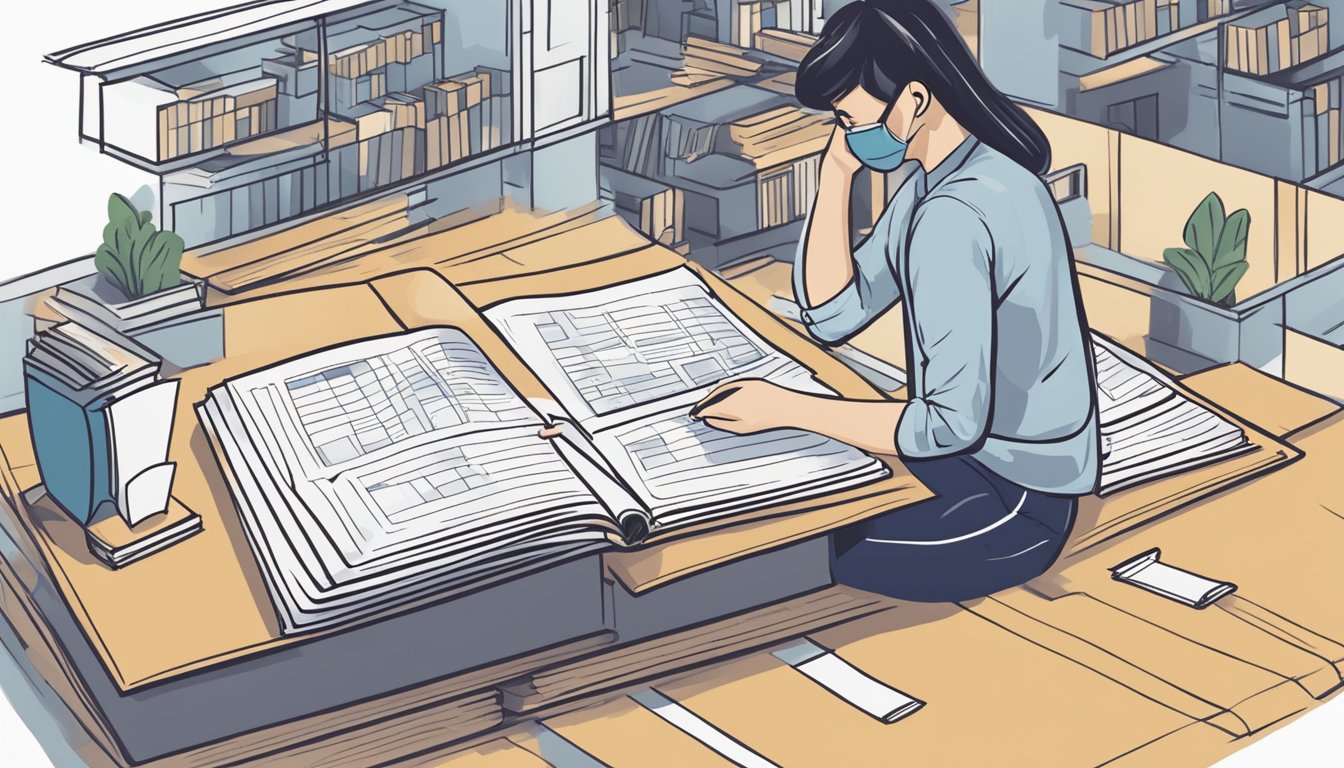
If you’re considering buying a second property in Singapore, there are a few things you need to know before you start. In this section, we’ll cover the eligibility criteria for second property purchase and provide an overview of the Singapore property market.
Eligibility Criteria for Second Property Purchase
Before you start looking for a second property in Singapore, it’s important to understand the eligibility criteria for second property purchase. If you’re a Singapore citizen, you can buy a second property as long as you meet the following criteria:
- You have fulfilled the Minimum Occupation Period (MOP) for your first property if it’s a Housing and Development Board (HDB) flat.
- You have no outstanding HDB loan for your first property.
- You have paid the Additional Buyer’s Stamp Duty (ABSD) for your second property.
If you’re a foreigner or a Singapore Permanent Resident (PR), you’ll need to pay ABSD for your second property purchase. The ABSD rates for foreigners and PRs are higher than for Singapore citizens.
Overview of the Singapore Property Market
The Singapore property market is divided into two main categories: public housing and private property. Public housing is provided by the HDB and is meant for Singapore citizens and PRs. Private property, on the other hand, is meant for anyone who can afford it.
If you’re looking to buy a second property in Singapore, you have the option of buying either a public housing or a private property. However, if you already own a HDB flat, you’ll need to fulfil the MOP before you can buy another HDB flat. If you’re looking to buy a private property, you’ll need to pay ABSD for your second property purchase.
When it comes to investing in a second property, it’s important to do your research and understand the current state of the Singapore property market. Property prices in Singapore have been on the rise in recent years, but there are still opportunities to find good deals if you know where to look. Keep in mind that buying a second property is a significant investment, so it’s important to be prepared and make an informed decision.
Financial Considerations and Strategies
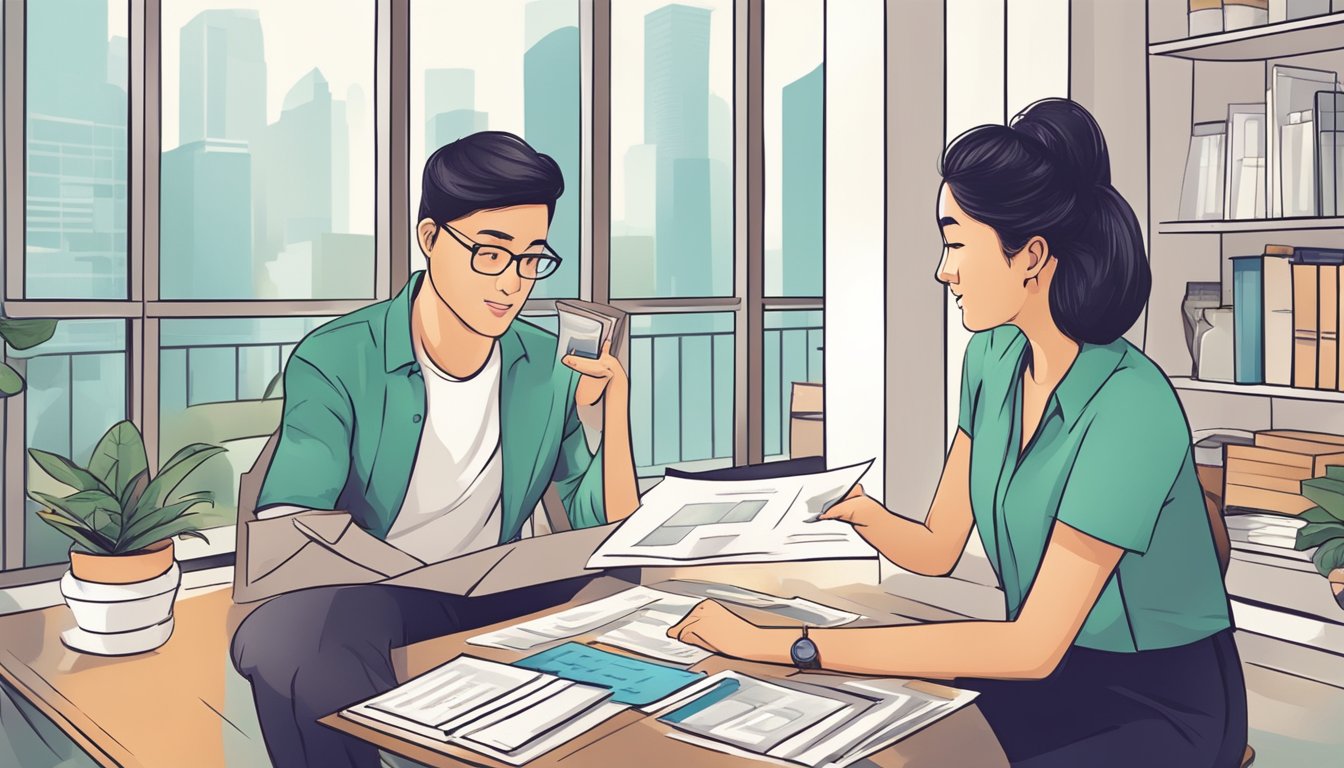
When planning to purchase a second property in Singapore with no money down, it is crucial to consider several financial strategies. Here are some key considerations to keep in mind:
Loan-to-Value (LTV) Ratio and Its Importance
The Loan-to-Value (LTV) ratio is the amount of the loan compared to the value of the property. The LTV ratio is an essential consideration when purchasing a second property with no money down. Most banks in Singapore offer up to 80% LTV ratio for the first property and up to 50% for the second property. However, some banks may offer higher LTV ratios, depending on your financial profile.
Leveraging Your CPF Ordinary Account
Another way to finance a second property with no money down is to leverage your CPF Ordinary Account. The CPF Ordinary Account is a savings account that earns interest and can be used to pay for housing-related expenses. You can use your CPF Ordinary Account to pay for the down payment, stamp duties, and legal fees for your second property.
Understanding Additional Buyer’s Stamp Duty (ABSD)
When purchasing a second property in Singapore, you must pay Additional Buyer’s Stamp Duty (ABSD). The amount of ABSD you need to pay depends on your profile, as shown in the table below:
| Type of Buyer | ABSD Rates |
|---|---|
| Singapore Citizens (2nd property) | 12% |
| Permanent Residents (1st property) | 5% |
| Permanent Residents (2nd property) | 15% |
| Foreigners (any residential property) | 20% |
To avoid paying ABSD, you can consider decoupling, which involves transferring the ownership of the property to the spouse with no existing properties. However, decoupling is not a guaranteed formula for success and should be approached with caution.
In conclusion, purchasing a second property with no money down in Singapore requires careful planning and consideration of various financial strategies. By leveraging your CPF Ordinary Account, understanding the LTV ratio, and ABSD, you can make informed decisions and achieve your goals of owning a second property.
Exploring Financing Options
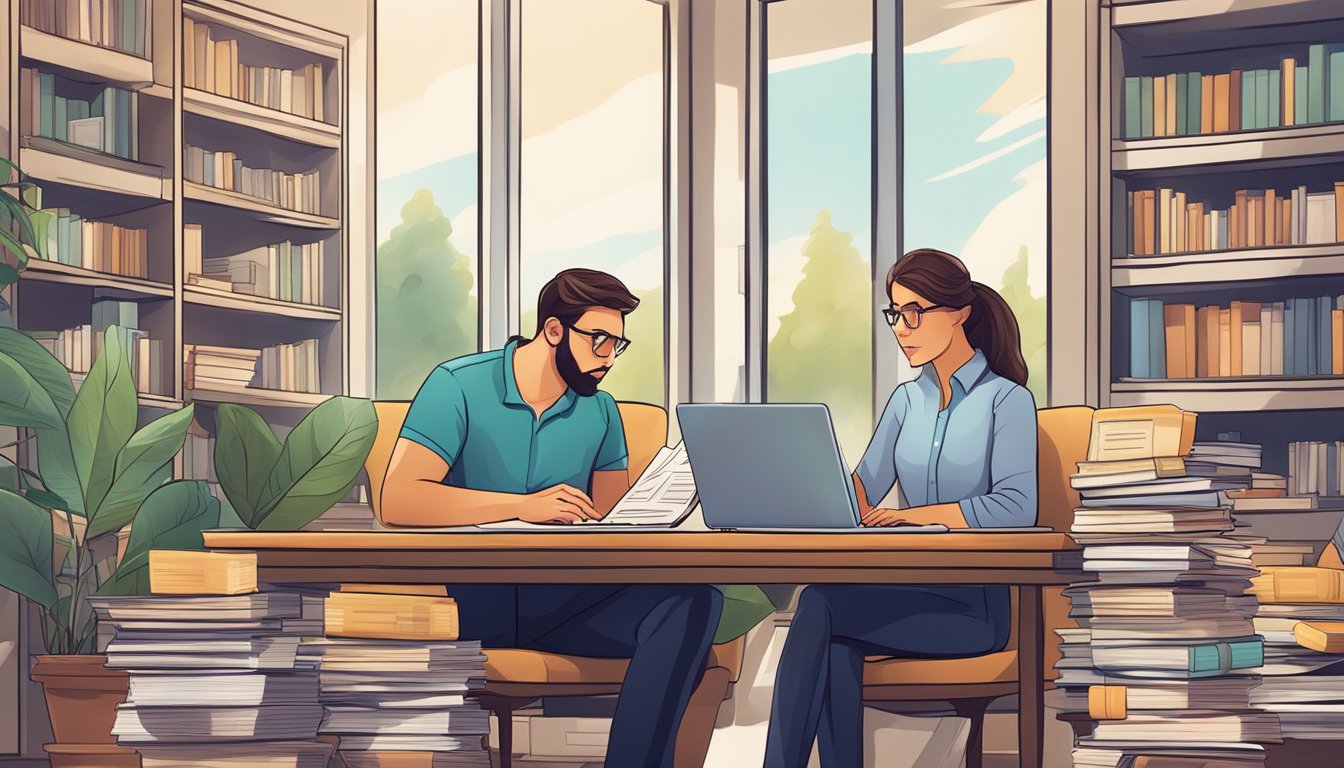
If you’re looking to buy a second property with no money down in Singapore, financing options are an essential consideration. Here are some options to explore:
Securing a Mortgage for Your Second Property
One way to finance your second property is to secure a mortgage. Banks and financial institutions in Singapore offer home loans with different interest rates and loan tenures. Before applying for a mortgage, consider your loan eligibility based on your gross monthly salary, credit score, and other factors.
It’s worth noting that the HDB loan is only available for the purchase of your first HDB flat. If you’re buying a second property, you’ll need to apply for a home loan from a bank or financial institution.
When choosing a mortgage, consider the interest rates and loan tenures offered. A longer loan tenure may result in lower monthly payments, but you’ll end up paying more interest over time. On the other hand, a shorter loan tenure may mean higher monthly payments, but you’ll pay less interest overall.
Creative Financing Alternatives
If you’re unable to secure a mortgage or prefer not to take on a loan, there are other financing alternatives to explore. For example, you could consider using your existing property’s equity to fund your second property purchase. This strategy allows you to retain your savings and use the proceeds from your existing property as an investment.
Another option is to consider purchasing one property to meet your family’s needs and another for investment purposes. This way, you can rent out the investment property and use the rental income to help pay for the mortgage on your primary residence.
Overall, financing your second property requires careful consideration of your financial situation and goals. Be sure to explore all your options and choose the one that works best for you.
Maximising Investment Potential

When buying a second property with no money down in Singapore, it’s important to maximise your investment potential. This means considering both rental income and yield strategies, as well as capital appreciation and long-term growth.
Rental Income and Yield Strategies
One way to maximise your investment potential is to focus on rental income and yield strategies. This involves calculating the potential rental yield and developing a strategy that considers the investment horizon, loss mitigation, and expected capital gains.
To calculate the potential rental yield, you need to divide the annual rental income by the property’s value. For example, if the annual rental income is $30,000 and the property’s value is $500,000, the rental yield is 6%. This can help you determine whether the property is a good investment.
You can also consider strategies such as renting out the property on a short-term basis, such as through Airbnb, to maximise your rental income. However, it’s important to consider the property tax implications of this strategy.
Capital Appreciation and Long-Term Growth
Another way to maximise your investment potential is to focus on capital appreciation and long-term growth. This involves estimating the return on investment (ROI) and developing a strategy that considers the investment horizon and expected capital gains.
To estimate the ROI, you need to consider both the potential rental income and the potential capital gains. For example, if you expect the property’s value to increase by 5% per year and the rental income to be $30,000 per year, the ROI would be 11%. This can help you determine whether the property is a good investment.
You can also consider strategies such as investing in properties that are expected to appreciate in value over time, such as those located in up-and-coming neighbourhoods or near new developments. However, it’s important to consider the investment horizon and the potential risks involved.
Overall, by focusing on rental income and yield strategies, as well as capital appreciation and long-term growth, you can maximise your investment potential when buying a second property with no money down in Singapore.
Navigating Legal and Regulatory Frameworks
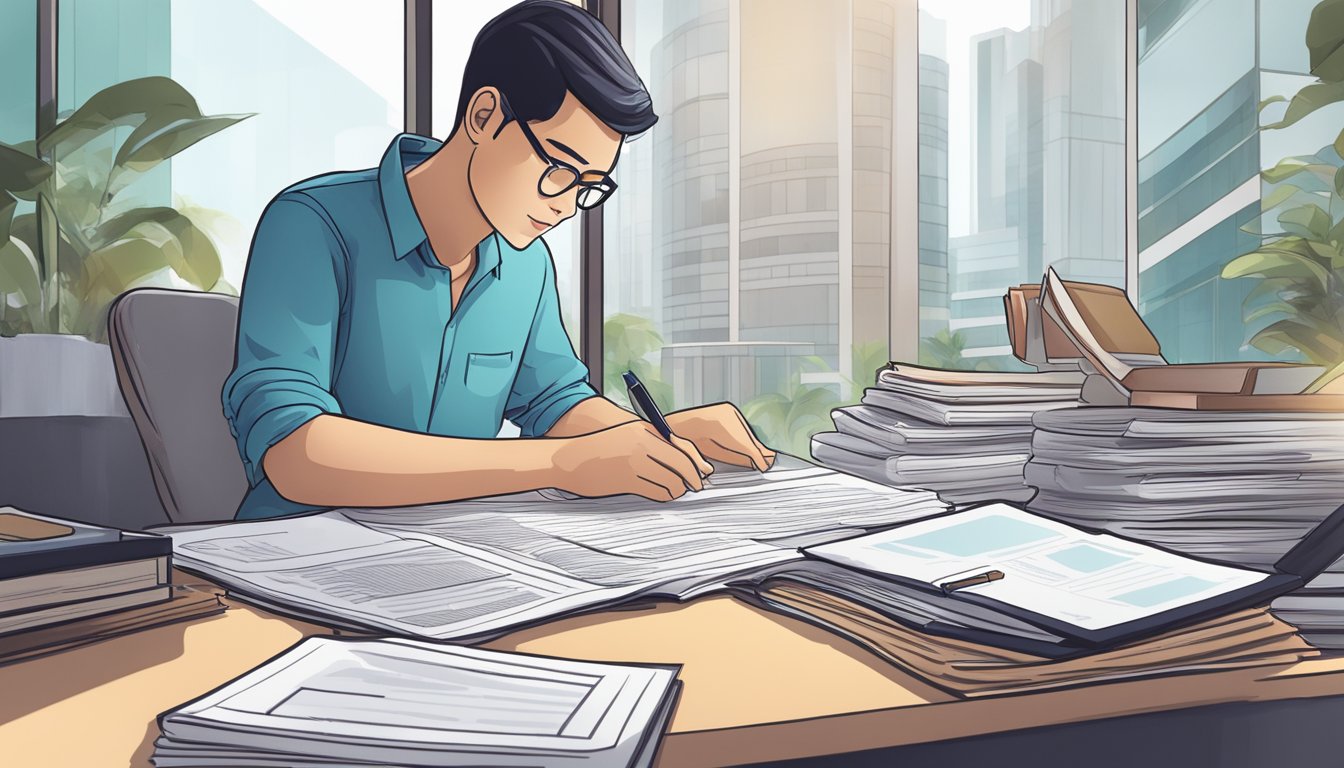
Complying with Property Cooling Measures
When buying a second property in Singapore, it is important to comply with the property cooling measures enforced by the government. The Monetary Authority of Singapore (MAS) has implemented these measures to ensure that the property market remains stable and sustainable.
One of the key measures is the Additional Buyer’s Stamp Duty (ABSD), which is a tax imposed on buyers who purchase a second or subsequent residential property. The ABSD rates vary depending on your residency status and the number of properties you own.
To avoid paying ABSD, you may consider decoupling, which involves transferring the ownership of your first property to another person, such as a family member or a trust. However, it is important to seek professional advice from a property expert or a lawyer to ensure that the decoupling process is done correctly and legally.
Understanding the Role of Trustees and Legal Entities
When buying a second property with no money down in Singapore, you may consider using a legal entity such as a trust to finance the purchase. A trust is a legal arrangement where a trustee holds and manages assets on behalf of a beneficiary.
Using a trust to finance a property purchase can be beneficial as it allows you to spread the financial risk among multiple parties. However, it is important to understand the role of trustees and the legal requirements involved in setting up a trust.
When setting up a trust, it is important to seek professional advice from a lawyer or a financial advisor who specializes in trust law. They can help you navigate the legal and regulatory frameworks involved in setting up a trust and ensure that you comply with the relevant laws and regulations.
In summary, when buying a second property with no money down in Singapore, it is important to comply with the property cooling measures enforced by the government and to understand the role of trustees and legal entities such as trusts. Seek professional advice from a property expert or a lawyer to ensure that you make informed decisions and comply with the relevant laws and regulations.
Frequently Asked Questions
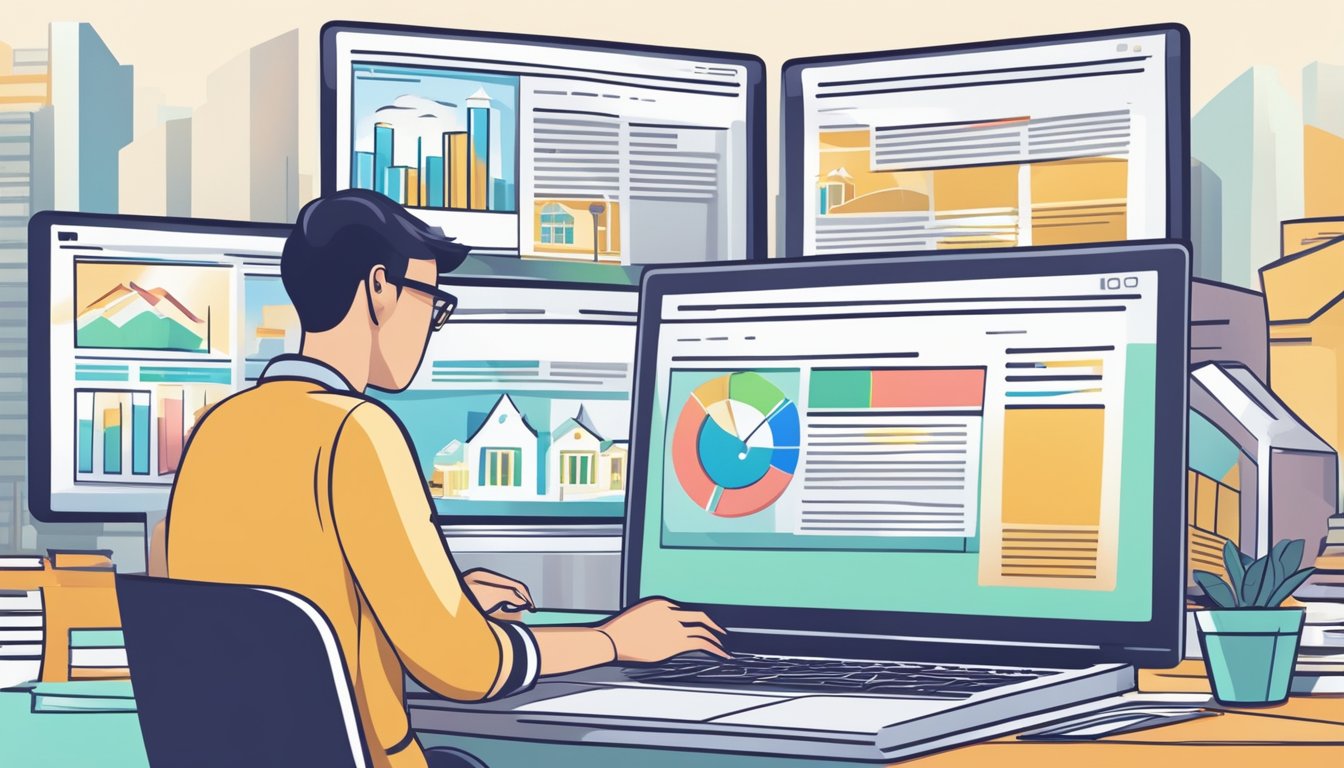
What are the strategies for investing in Singapore property with minimal initial capital?
Investing in Singapore property can be a lucrative opportunity, even with minimal initial capital. One common strategy is to consider purchasing a property that is currently under construction. This approach allows you to secure the property at a lower price and gives you time to save up for the down payment while the property is being built. Another strategy is to consider partnering with other investors to pool resources and purchase a property together.
Can you purchase a house in Singapore without a down payment, and how?
It is not possible to purchase a house in Singapore without a down payment. However, there are options available for those who may not have the full amount available upfront. One option is to use your CPF funds to pay part of the down payment. Another option is to consider a joint loan with a family member or friend to spread the cost of the down payment.
What are the regulations surrounding the acquisition of a second property in Singapore?
The regulations surrounding the acquisition of a second property in Singapore are strict. The minimum cash down payment for a second residential property is 25%, compared to 5% for a first property. Additionally, if you are a Singapore Citizen and the purchase price of your second property is $2 million, you will have to pay an Additional Buyer’s Stamp Duty (ABSD) of 12%. It is important to consult with a real estate agent or lawyer to ensure that you are complying with all regulations.
How can one utilise their CPF funds for the purchase of a second property?
If you have enough funds in your CPF account, you can use them to pay part of the down payment for your second property. However, it is important to note that there are limits to how much you can withdraw from your CPF account for this purpose. It is advisable to consult with a financial advisor or CPF Board representative to understand the specific regulations and limitations.
Is acquiring a second property in Singapore a savvy investment choice?
Acquiring a second property in Singapore can be a savvy investment choice, provided that you have done your research and are aware of the risks involved. Property prices in Singapore have historically appreciated over time, and rental yields can provide a steady source of income. However, it is important to consider factors such as market conditions, location, and financing options before making a decision.
What’s the maximum loan amount one might secure for a second property in Singapore?
The maximum loan amount one might secure for a second property in Singapore is typically 75% of the property’s valuation limit. However, this can vary depending on factors such as your credit score, income, and existing debt. It is important to consult with a bank or financial institution to understand your specific loan options and eligibility requirements.




